In order to keep campus safe and for classes and activities to continue face-to-face, all events at Missouri Southern State University have been closed to external guests until further notice. All campus activities, including those scheduled as part of the Caribbean Semester, will be open only to Missouri Southern students, faculty and staff.
8 a.m. to 5 p.m. Monday – Friday
(Reception from 4 to 6 p.m., Monday, Aug. 17, 2020)
MSSU Spiva Art Gallery
Admission: free
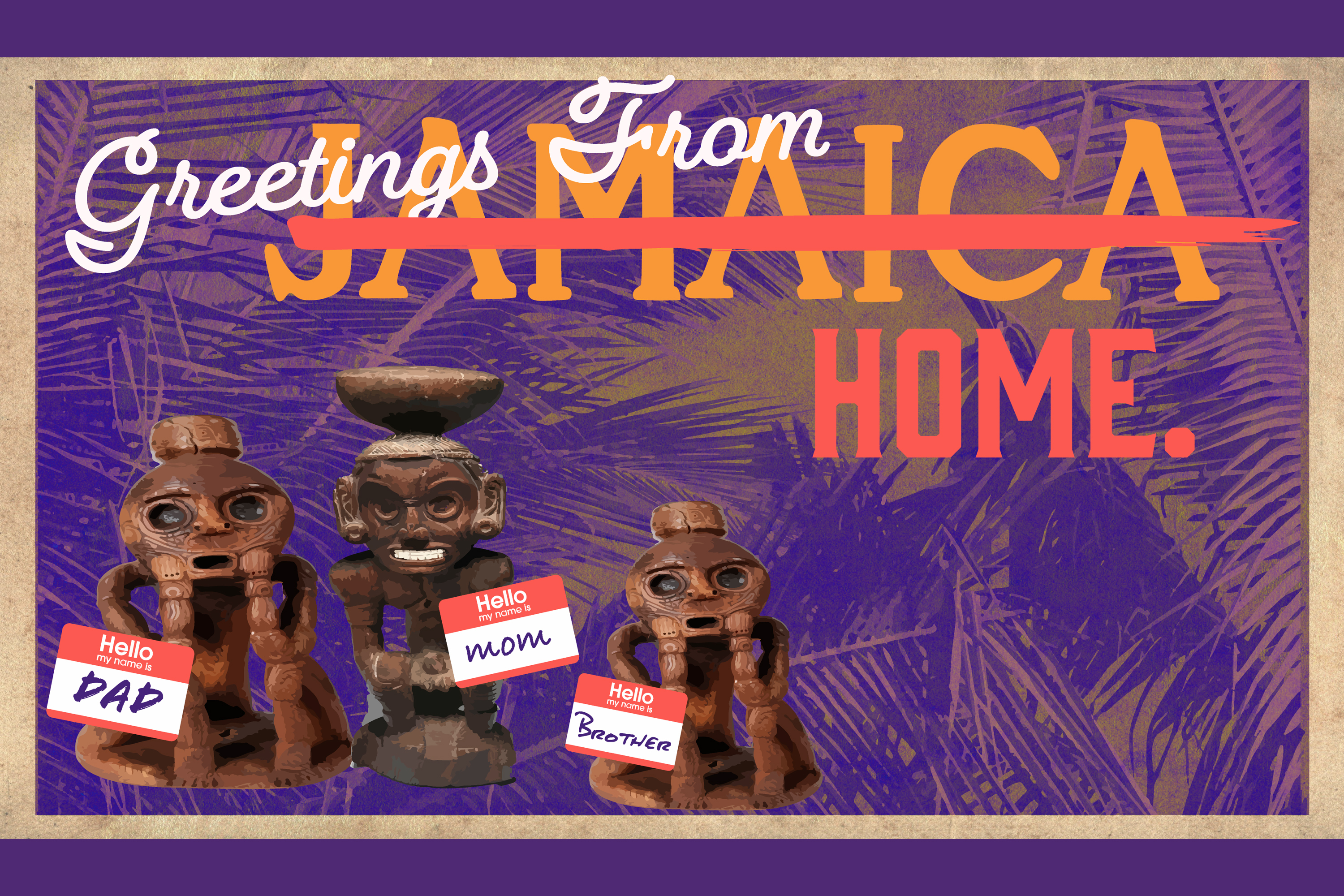 MSSU students and art faculty planned to travel to Jamaica to study historical Taino and contemporary Jamaican art. Instead, the COVID-19 crisis shut down their trip just days before departure. They worked through this abrupt challenge by engaging in individual research efforts to study how unique Jamaican art styles flourished at the intersections of Jamaica’s Taino Indian history and European traditional styles during the colonial period. They critically explored how Jamaican artists’ responses in the “Primitivism” art movement challenged Western notions of tribal and “primitive” experiences and reevaluated the traditional art historical canon to perceive how Jamaican intuitive art has progressed modern art.
MSSU students and art faculty planned to travel to Jamaica to study historical Taino and contemporary Jamaican art. Instead, the COVID-19 crisis shut down their trip just days before departure. They worked through this abrupt challenge by engaging in individual research efforts to study how unique Jamaican art styles flourished at the intersections of Jamaica’s Taino Indian history and European traditional styles during the colonial period. They critically explored how Jamaican artists’ responses in the “Primitivism” art movement challenged Western notions of tribal and “primitive” experiences and reevaluated the traditional art historical canon to perceive how Jamaican intuitive art has progressed modern art.
This exhibition features creative works made in reaction to this study of the art of Jamaica and includes works of art by honors students Elizabeth Bryant, Avery Cozens, and Riley Rickman, MSSU art alumna Veronica Pickett (BFA Studio 2020), art and design major Pheobe Burke, and graduate student Nellie Mitchel (post-baccalaureate studies in art). This international experience was developed and led by Taylor Moon, assistant professor of art and design.
9:30 a.m.
Phelps Theater
Admission: free
The Many Natalias Bolivar Recording
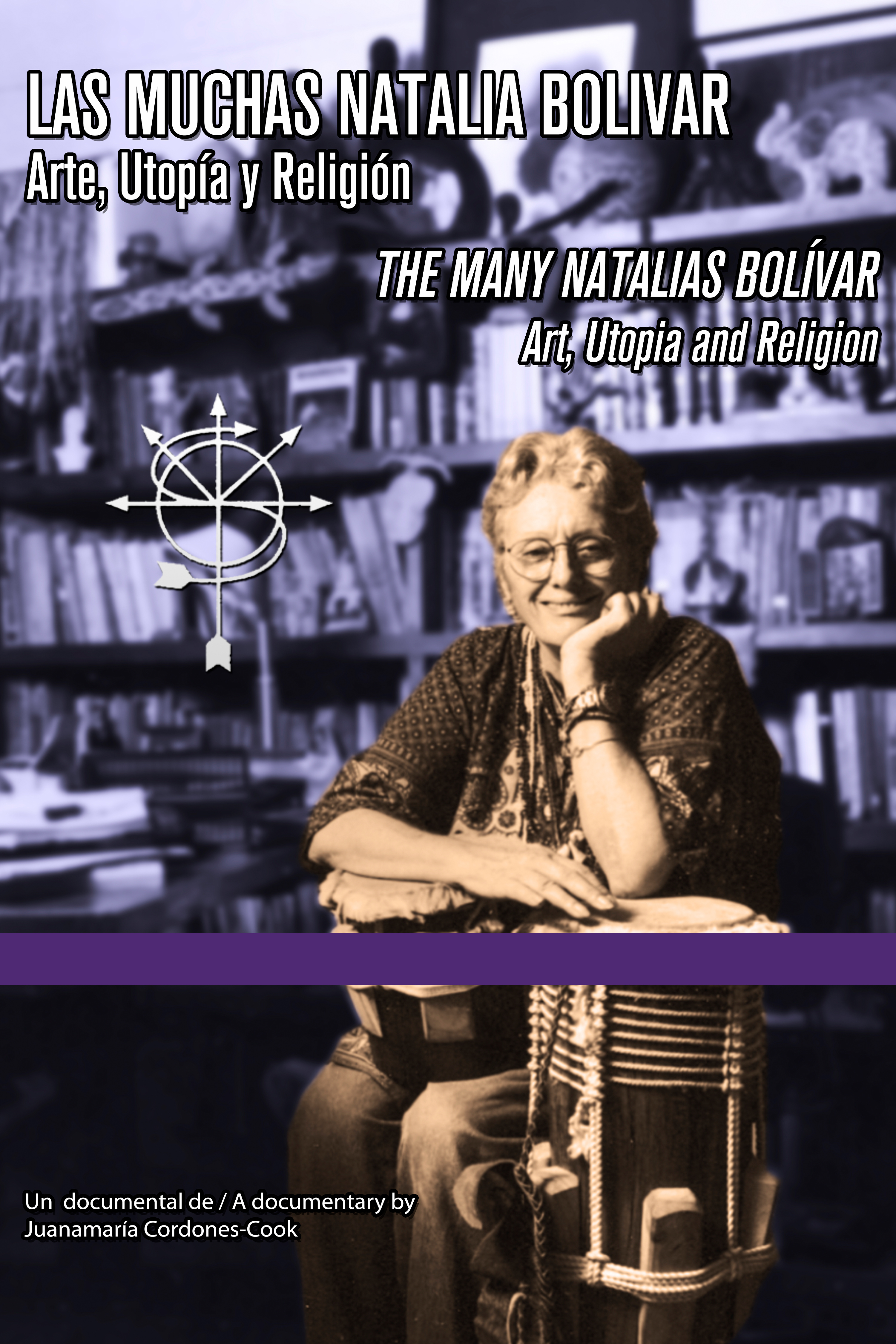 This 2018 documentary by Juanamaría Cordones-Cook features the many social and cultural roles lived by Natalia Bolívar, a direct descendant of the Cuban Simon Bolívar family. A deeply patriotic aristocrat with a revolutionary calling, she joined the Directorio Revolucionario for the Cuban Revolution and was arrested and tortured by the Batista regime. After 1959, Natalia actively collaborated with the new order in numerous cultural spheres. She was in charge of restoring, reorganizing, and directing the Museo Nacional de Bellas Artes. She also founded and directed the Numismatic Museum of the Banco Nacional de Cuba, as well as the Napoleonic Museum in Havana. A natural and powerful cultural advocate and promoter, Natalia has been a frequent consultant for filmmaking, film festivals, exhibits, books, plays, and theater performances.
This 2018 documentary by Juanamaría Cordones-Cook features the many social and cultural roles lived by Natalia Bolívar, a direct descendant of the Cuban Simon Bolívar family. A deeply patriotic aristocrat with a revolutionary calling, she joined the Directorio Revolucionario for the Cuban Revolution and was arrested and tortured by the Batista regime. After 1959, Natalia actively collaborated with the new order in numerous cultural spheres. She was in charge of restoring, reorganizing, and directing the Museo Nacional de Bellas Artes. She also founded and directed the Numismatic Museum of the Banco Nacional de Cuba, as well as the Napoleonic Museum in Havana. A natural and powerful cultural advocate and promoter, Natalia has been a frequent consultant for filmmaking, film festivals, exhibits, books, plays, and theater performances.
Juanamaría Cordones-Cook, the University of Missouri Curators’ Distinguished Research Professor, will introduce her documentary. Documentaries by Cordones-Cook have received numerous national and international awards including an Emmy nomination. They have been screened hundreds of times at prestigious venues around the world including La Sorbonne and the University de Lyon, in France; the University of Humboldt and the Instituto Cervantes, in Berlin; the Hebrew University of Jerusalem; the Universidad de Cartagena, in Colombia; and in the United States, at the Massachusetts College of Art and Design; Harvard University; Washington University; the University of Michigan; among many other academic institutions, as well as at major national and international museums, libraries and festivals, including festivals dedicated to Cordones-Cook films.
1 p.m.
Phelps Theater
Admission: free
The Magic World of Mendive Recording
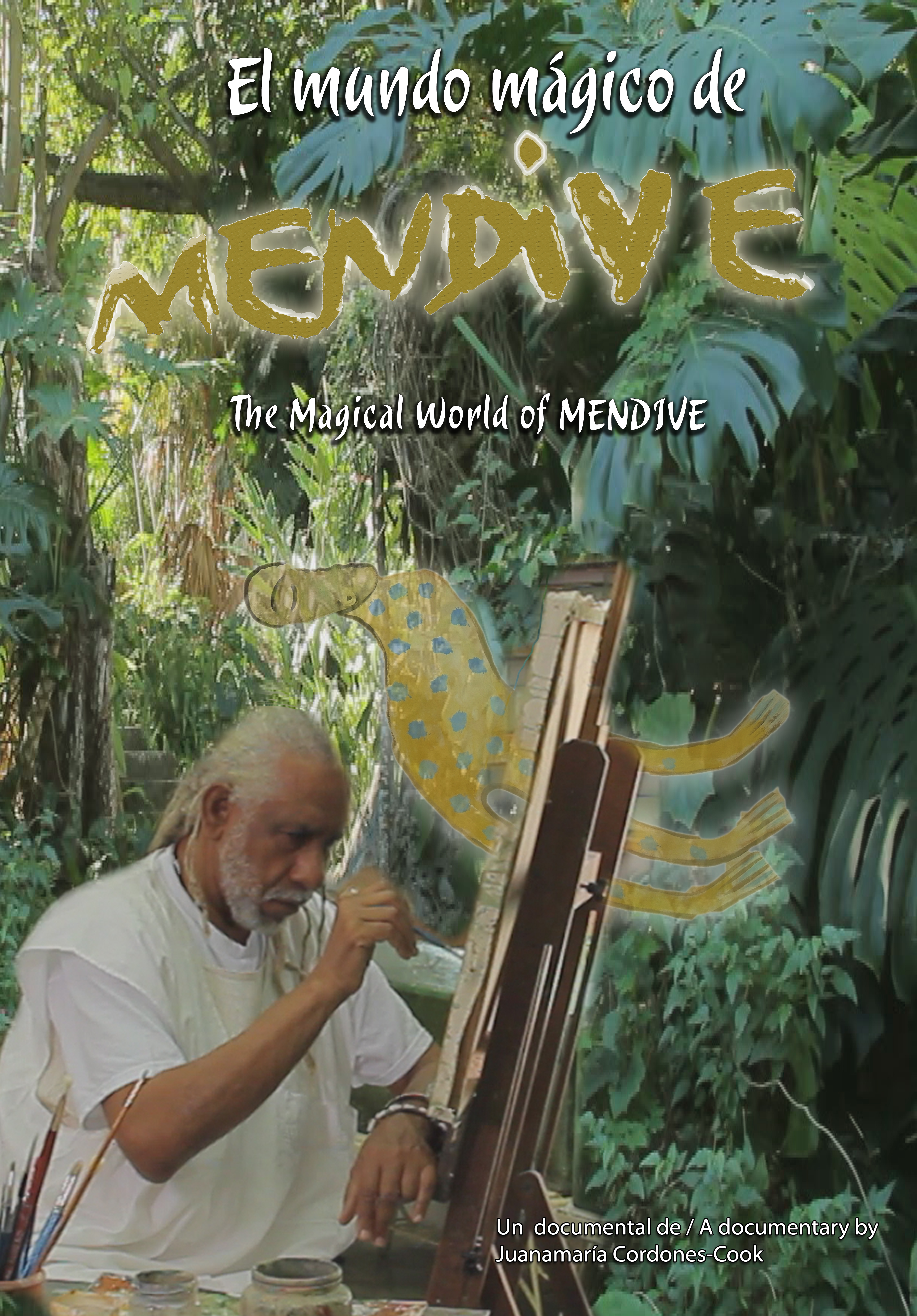 Film offers a unique perspective into the personal and artistic world of Manuel Mendive, the leading contemporary Cuban artist. Creating in various genres, drawing, painting, body painting, soft and hard sculpture, installations, and performances, Mendive is also a Santería priest, whose spirituality permeates all of his creations. This documentary shows a broad spectrum of his work including his latest performance in Havana, Las Cabezas (2012). Mendive appears painting in his studio as well as in the midst of his tropical forest offering some unprecedented remarks on his early life, on African elements in his art while he discusses his aesthetics and his profound fascination with the creative process. This film is enriched with comments by major Cuban intellectuals, Nancy Morejón, Pablo Armando Fernández, Yolanda Wood, and Adelaida de Juan, as well as with music by Ulises Hernández and Argeliers León.
Film offers a unique perspective into the personal and artistic world of Manuel Mendive, the leading contemporary Cuban artist. Creating in various genres, drawing, painting, body painting, soft and hard sculpture, installations, and performances, Mendive is also a Santería priest, whose spirituality permeates all of his creations. This documentary shows a broad spectrum of his work including his latest performance in Havana, Las Cabezas (2012). Mendive appears painting in his studio as well as in the midst of his tropical forest offering some unprecedented remarks on his early life, on African elements in his art while he discusses his aesthetics and his profound fascination with the creative process. This film is enriched with comments by major Cuban intellectuals, Nancy Morejón, Pablo Armando Fernández, Yolanda Wood, and Adelaida de Juan, as well as with music by Ulises Hernández and Argeliers León.
Juanamaría Cordones-Cook, the University of Missouri Curators’ Distinguished Research Professor, will introduce this 2015 documentary.
5 p.m.
Bookhouse Cinema, 715 E. Broadway, Joplin
Food and drinks for purchase
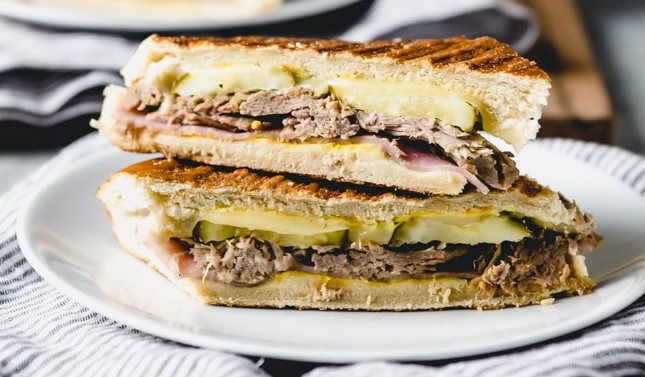 Join us for some traditional Cuban cuisine and beverages. Students from the MSSU Spanish Club and Sigma Delta Pi will help prepare the food. Indoor and patio seating available.
Join us for some traditional Cuban cuisine and beverages. Students from the MSSU Spanish Club and Sigma Delta Pi will help prepare the food. Indoor and patio seating available.
7 p.m.
Bookhouse Cinema, 715 E. Broadway, Joplin
Admission: free (films shown simultaneously and then repeated to promote social distancing)
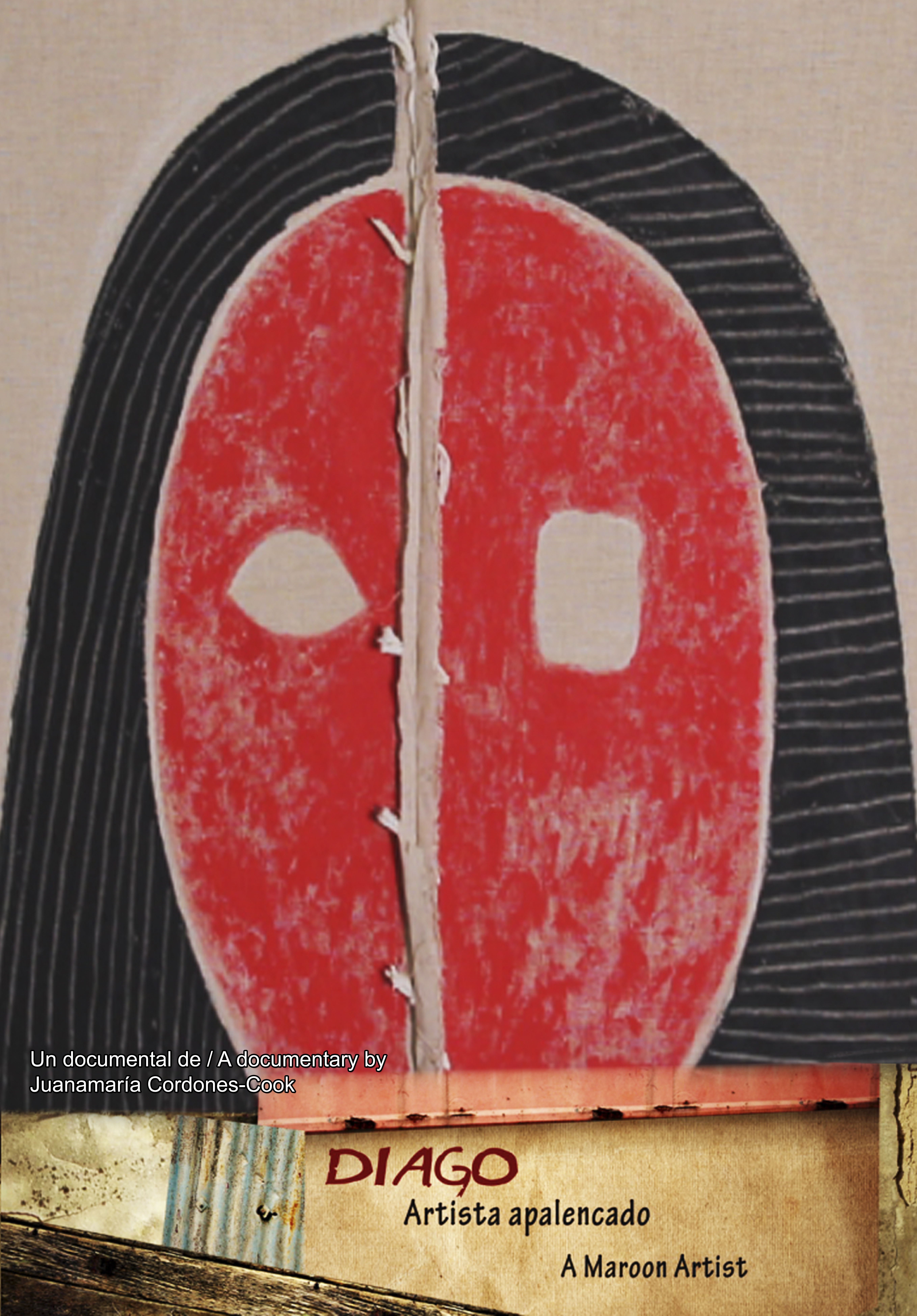 Juanamaría Cordones-Cook, the University of Missouri Curators’ Distinguished Research Professor, will introduce two more of her documentaries. Juan Roberto Diago, a prominent multimedia artist, understands the creative possibilities of recycling and bricolage and frequently enriches his images by juxtaposing graffiti with racially contesting implications. He has labeled himself a “maroon artist” and his art work results in cultural resistance. In this 28-minute documentary, Diago openly discusses issues of race and poverty in contemporary Cuba, as well as their representation in his paintings and installations.
Juanamaría Cordones-Cook, the University of Missouri Curators’ Distinguished Research Professor, will introduce two more of her documentaries. Juan Roberto Diago, a prominent multimedia artist, understands the creative possibilities of recycling and bricolage and frequently enriches his images by juxtaposing graffiti with racially contesting implications. He has labeled himself a “maroon artist” and his art work results in cultural resistance. In this 28-minute documentary, Diago openly discusses issues of race and poverty in contemporary Cuba, as well as their representation in his paintings and installations.
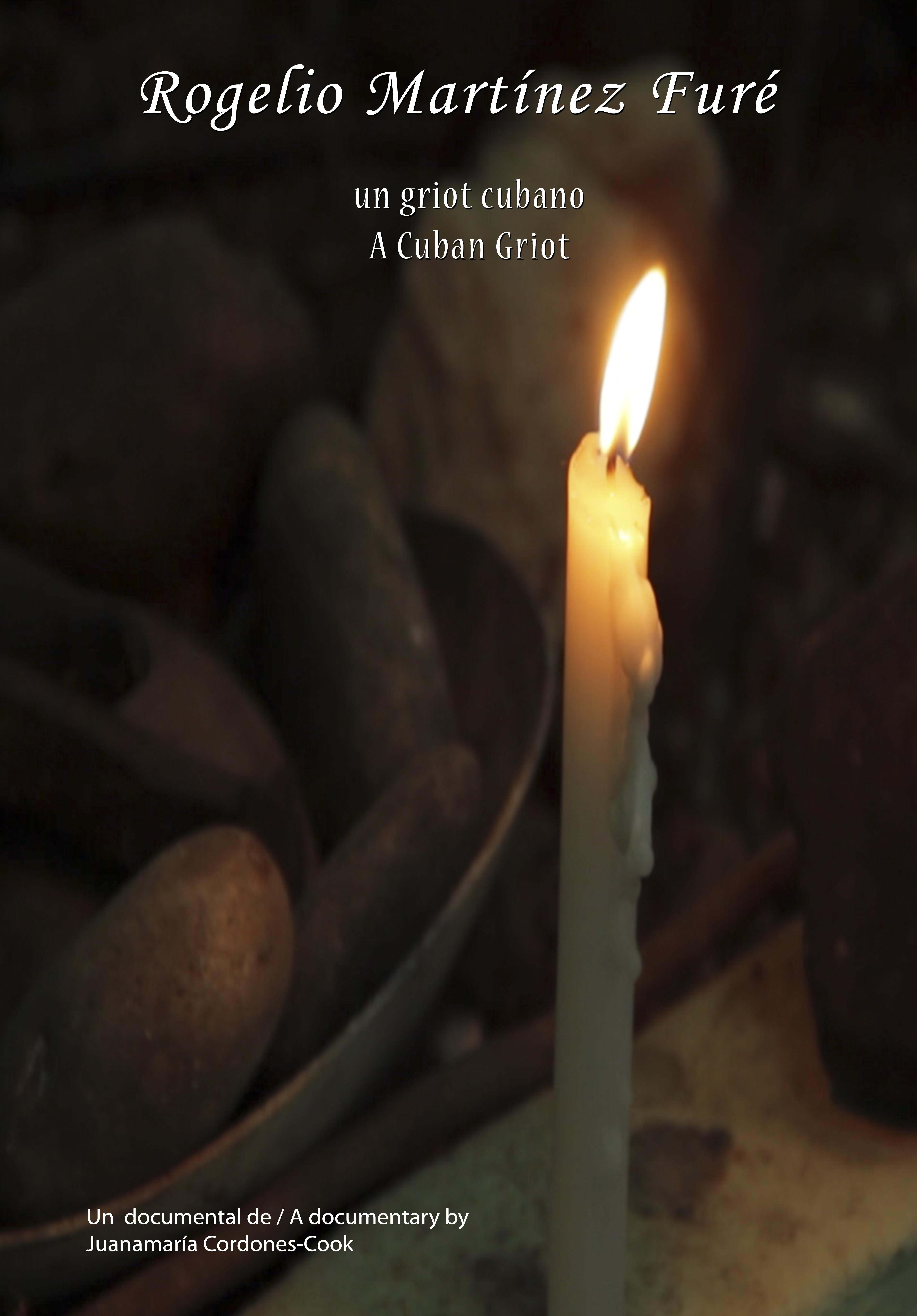 The second film presents the life and work of Rogelio Martínez Furé, Afro-Cuban writer, Africanist, scholar of folklore and religion, and founder of the National Folkloric Ballet of Cuba. Through conversations with Martínez Furé and other prominent Afro-Cuban intellectuals – Georgina Herrera, Nancy Morejón, Manolo Micler, Roberto Zurbano, as well as images and performances of religious rituals and dances of the National Folkloric Ballet and the Olurum Group, this 30-minute film discloses layers of Cuba’s rich African legacy and cultural heritage. It portrays Martínez Furé as a contemporary griot, a repository of oral tradition who recovers and guards Afro-Cuban and Caribbean silenced memories and true identity.
The second film presents the life and work of Rogelio Martínez Furé, Afro-Cuban writer, Africanist, scholar of folklore and religion, and founder of the National Folkloric Ballet of Cuba. Through conversations with Martínez Furé and other prominent Afro-Cuban intellectuals – Georgina Herrera, Nancy Morejón, Manolo Micler, Roberto Zurbano, as well as images and performances of religious rituals and dances of the National Folkloric Ballet and the Olurum Group, this 30-minute film discloses layers of Cuba’s rich African legacy and cultural heritage. It portrays Martínez Furé as a contemporary griot, a repository of oral tradition who recovers and guards Afro-Cuban and Caribbean silenced memories and true identity.
8 a.m. to 5 p.m. Monday – Friday
Artist’s talk (Zoom), 11 a.m. Wednesday, Sept. 10, 2020
Corley Auditorium, Webster hall
Gallery reception from 12 p.m. to 1 p.m. Wednesday, Sept. 23, 2020
MSSU Spiva Art Gallery
Admission: free
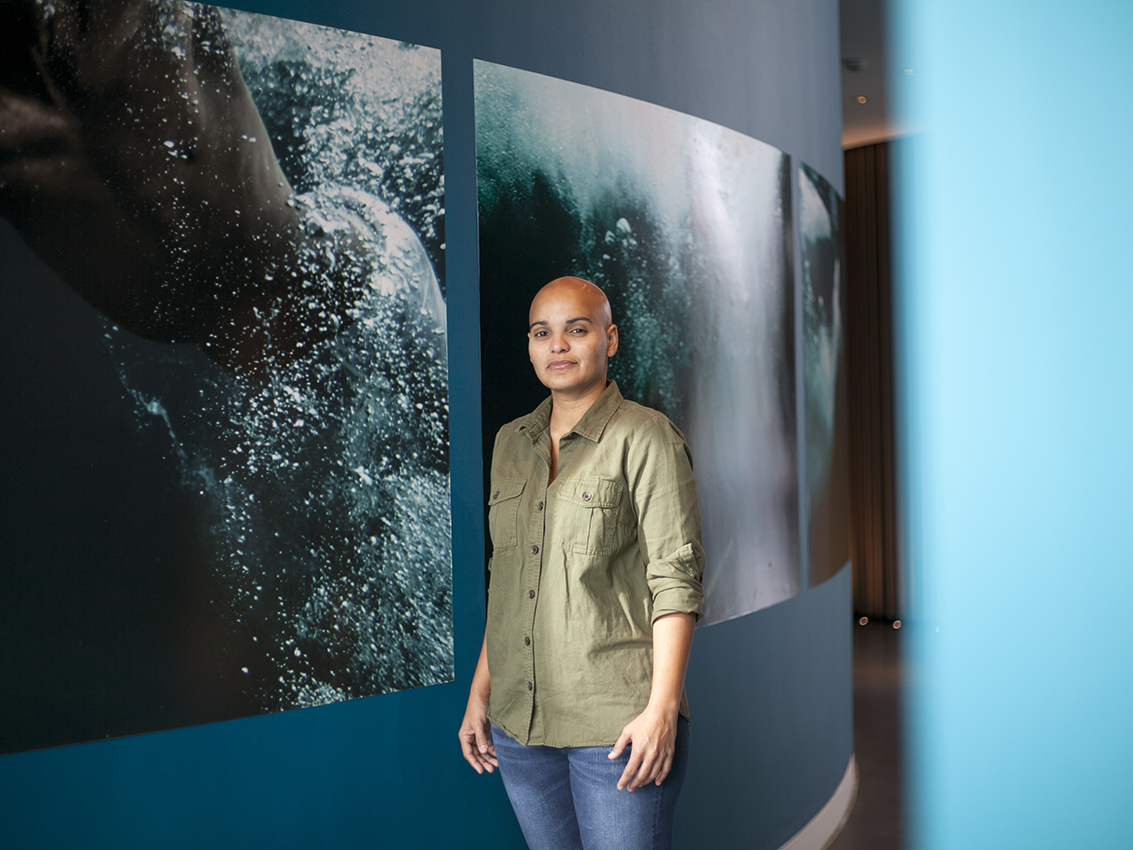 (photo by Kate Elliot)
(photo by Kate Elliot)
Please join the MSSU Spiva Gallery for a community art project on Saturday, September 12th from 10:00 am -12:00 pm. This “Beyond the Boundary” event is a window mural project in conjunction with the “On an Island” exhibition by Nadia Huggins, one of the Caribbean Themed 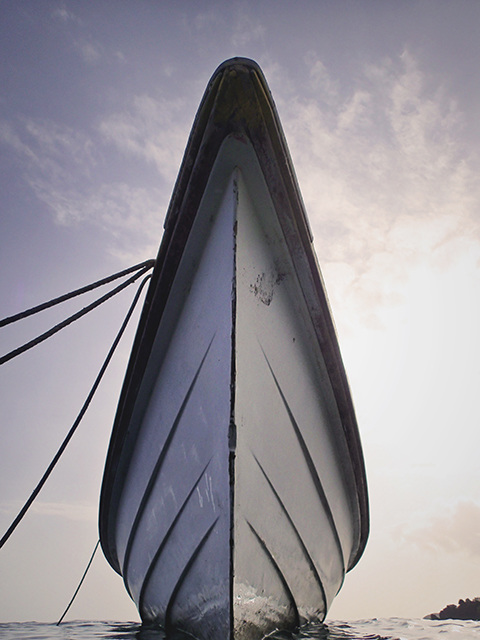 Semester events. Participants will explore imagery created by Nadia Huggins focusing on themes of boundaries, limits, and “breaking through” to discover what is beyond those limits.
Semester events. Participants will explore imagery created by Nadia Huggins focusing on themes of boundaries, limits, and “breaking through” to discover what is beyond those limits.
After discussing photographs in the exhibit with Dr. Christine Bentley, Associate Professor of Art, and Dr. Amber Mintert, Associate Professor of Art, participants will create a drawing of themselves demonstrating their interpretation of breaking boundaries. The group will incorporate these drawing into a pre-made mural of water imagery (taken from Nadia Huggins’ photographs). The group will then install all images onto windows within the Fine Arts Building. The community will view the mural from both inside and outside the windows of the Fine Arts Building.
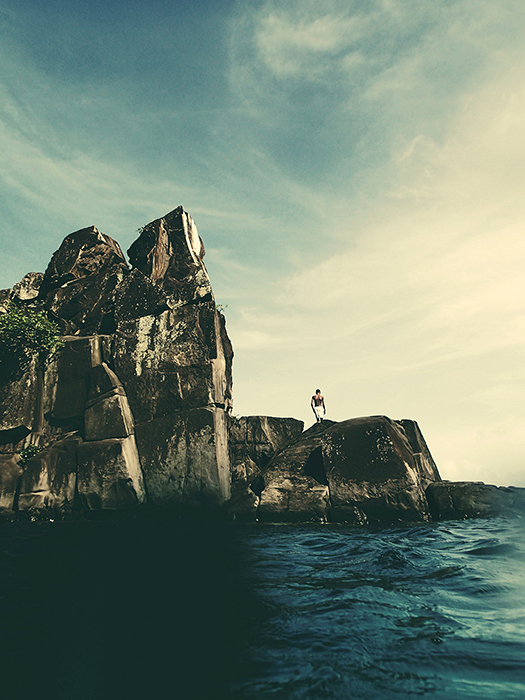 This event is limited to 13 participants, ages 5 and up. Please RSVP to Bentley-c@mssu.edu or minter-a@mssu.edu by 4 PM on Tuesday, September 2, 2020, to register for this free community mural event. There is no fee to participate in this group project.
This event is limited to 13 participants, ages 5 and up. Please RSVP to Bentley-c@mssu.edu or minter-a@mssu.edu by 4 PM on Tuesday, September 2, 2020, to register for this free community mural event. There is no fee to participate in this group project. 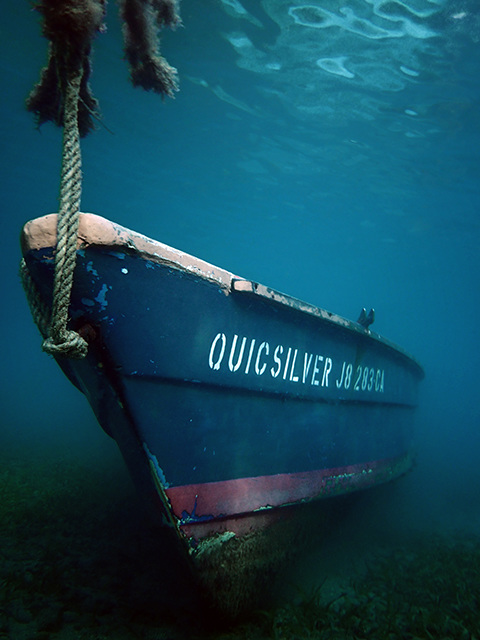
12 p.m.
Corley Auditorium in Webster Hall (Zoom presentation)
Admission: free
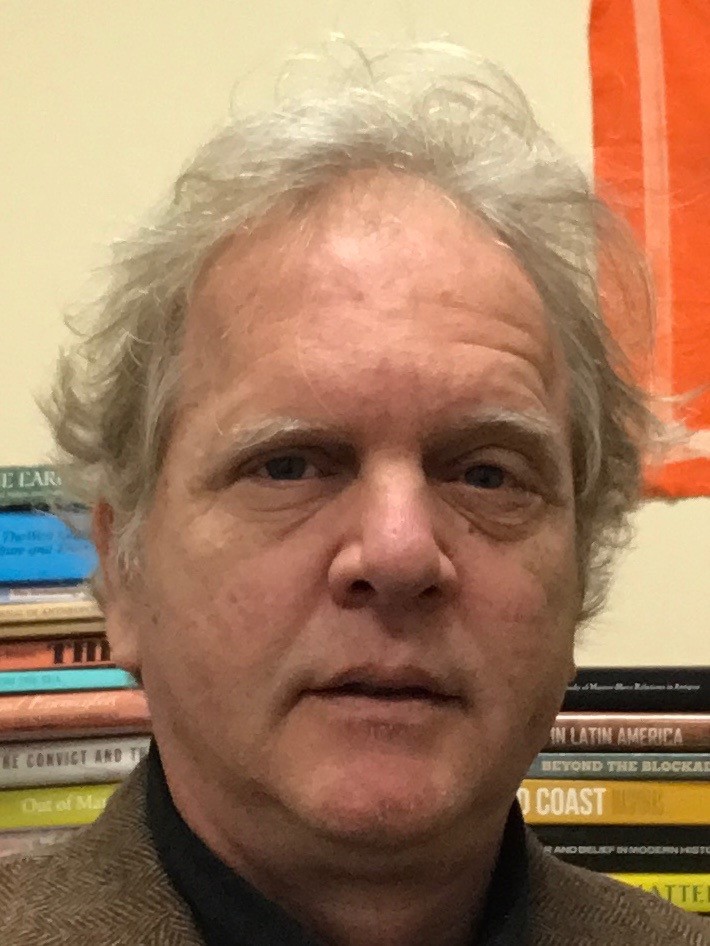 Alcohol is the world’s most widely used drug, and drinking is often a highly ritualized social event. Rum making emerged in the Caribbean in the early 17th century to meet the social and spiritual needs of colonists. Rum drinking helped enslaved Africans, indigenous peoples, and indentured European laborers cope with the challenges of everyday life. However, rum eventually became a valuable economic commodity that connected peoples in different parts of the early Atlantic world. At the level of the lowest common denominator, drinking patterns in the Caribbean reflect the shared social and spiritual beliefs of Europeans, Africans, Carib Indians, and South Asians. Alcohol helped colonists express ethnic identity, define social boundaries, enhance resistance ideologies, and escape the many anxieties of life in the region. Today, Caribbean rum is one of the most widely consumed spirits in the world, and it is a defining commodity of Caribbean identity.
Alcohol is the world’s most widely used drug, and drinking is often a highly ritualized social event. Rum making emerged in the Caribbean in the early 17th century to meet the social and spiritual needs of colonists. Rum drinking helped enslaved Africans, indigenous peoples, and indentured European laborers cope with the challenges of everyday life. However, rum eventually became a valuable economic commodity that connected peoples in different parts of the early Atlantic world. At the level of the lowest common denominator, drinking patterns in the Caribbean reflect the shared social and spiritual beliefs of Europeans, Africans, Carib Indians, and South Asians. Alcohol helped colonists express ethnic identity, define social boundaries, enhance resistance ideologies, and escape the many anxieties of life in the region. Today, Caribbean rum is one of the most widely consumed spirits in the world, and it is a defining commodity of Caribbean identity.
Frederick H. Smith is assistant professor and coordinator of the global studies program in the department of liberal studies at North Carolina A&T State University (the largest of the historically black colleges and universities in the United States). Since 1995, Smith has conducted historical, anthropological, and archaeological research on the role of alcohol in the Caribbean, especially in the island of Barbados. He is author of Caribbean Rum: A Social and Economic History (University Press of Florida, 2005) and The Archaeology of Alcohol and Drinking (University Press of Florida, 2008). He has also published numerous articles on Caribbean drinking practices that draw on archaeological, documentary, and ethnographic evidence.
Smith explores the history of the sugar revolution and the political economy of the Atlantic rum trade. He is primarily interested in the transfer of West African cultural practices to the Caribbean. In particular, the drinking practices that emerged in the early colonial Caribbean are part of the broader theme of creolization that resulted from the blending of social and spiritual beliefs about alcohol from various West African ethnic groups, as well as Europeans and indigenous Caribbean peoples.
11 a.m.
Corley Auditorium in Webster Hall
Pirates of the Caribbean in the Golden Age of Piracy Recording
Admission: free
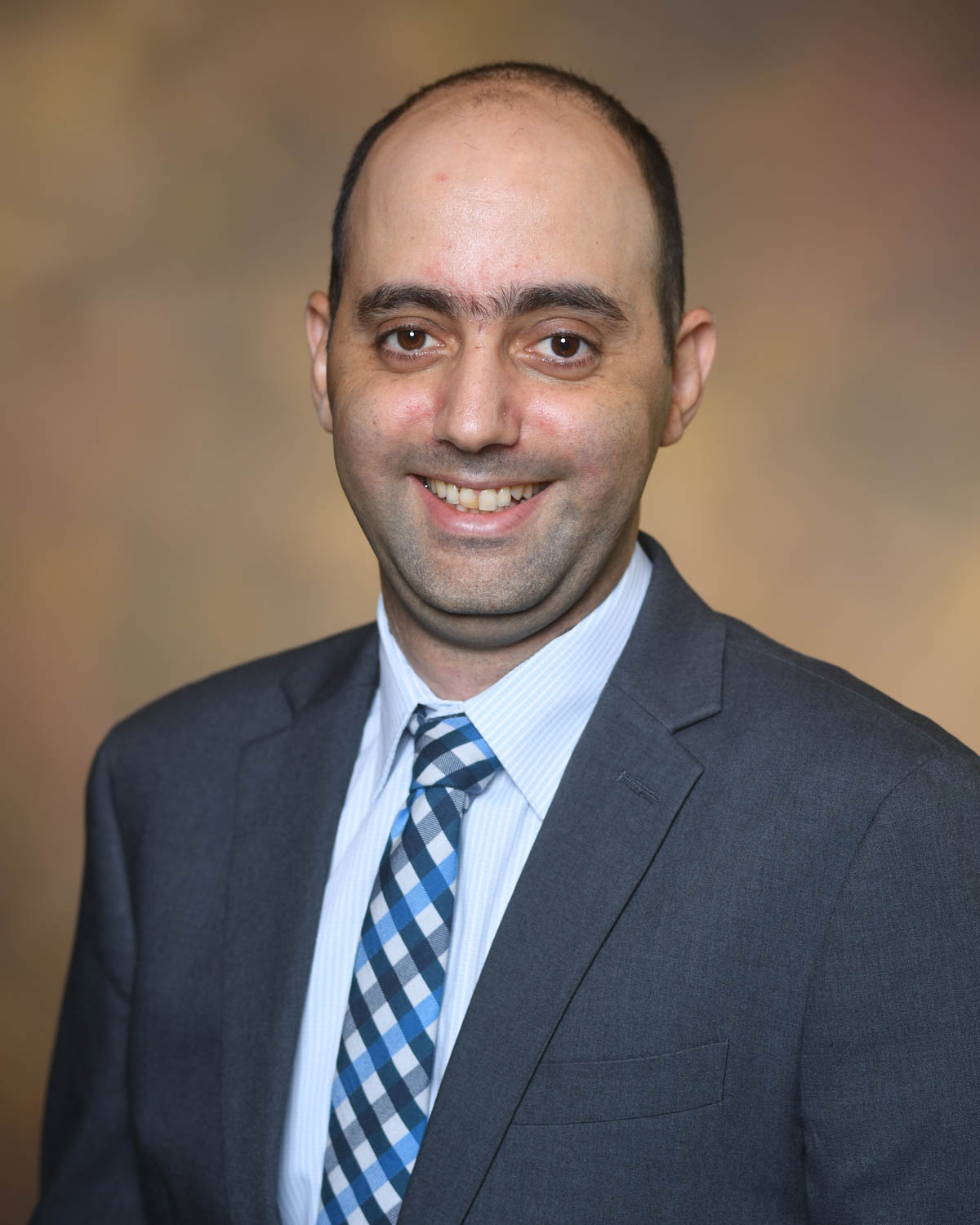 Pirates have long captivated the modern imagination, whether they are Captain Hook, Captain Morgan, or Jack Sparrow, who led his motley crew of pirates to roam the waters of the Caribbean in search of treasures and glory. But the true story behind the pirates of the Caribbean is much more captivating than the Hollywood or Disney renditions.
Pirates have long captivated the modern imagination, whether they are Captain Hook, Captain Morgan, or Jack Sparrow, who led his motley crew of pirates to roam the waters of the Caribbean in search of treasures and glory. But the true story behind the pirates of the Caribbean is much more captivating than the Hollywood or Disney renditions.
In the Golden Age of Piracy, c.1650-1730, pirate ships swarmed the Caribbean waters. They were a diverse group of outlaws who came from a variety of ethnic, religious, and racial backgrounds – there were also many female pirates! – to roam the seas and terrorize its inhabitants. But pirates did more than just ravage and destroy. They played a crucial role in the founding of Caribbean settlements and the formation of trans-Atlantic European empires.
It is no coincidence that the Golden Age of Piracy corresponded to the decades of the “Sugar Revolution,” when European settlers flocked to the Caribbean where, with the labor of enslaved Africans and other unfree laborers, they built plantations and cultivated “cash crops” such as sugar, tobacco, and indigo, making the Caribbean the center of the global economy. Some of these early planters were, in fact, former pirates, who settled down, built cities, and expanded trade. Pirates were instrumental in the process of European colonization in the Caribbean. Their story is as complex as are the origins of the modern Caribbean.
Dr. Arad Gigi, an expert on Caribbean history, will dispel some of the myths around the pirates of the Caribbean and highlight their importance to Caribbean history. Next time you watch Pirates of the Caribbean, you will know the true story behind the legend of Jack Sparrow and his crew.
Arad Gigi is a historian of the Caribbean at the University of Southern Mississippi. An expert in Caribbean history, his work explores French imperialism and colonization in the region in the course of the 17th and 18th centuries. He is currently working on a book that is tentatively titled The Materiality of Empire: Forts, Labor, and the Colonial State in the French Caribbean, 1661-1776. This manuscript explores the history of imperial military architecture in the French Caribbean colonies. The construction and maintenance of colonial fortifications, as well as the supporting infrastructure such as roads, harbors, and hospitals, demanded enormous sums, complex logistics, massive labor mobilization, and effective coordination between royal authorities and colonial elites. This research sheds new light on the formation and evolution of colonial state and society, as well as on the history of labor dynamics, slavery, race, and scientific inquiry in the early-modern Caribbean. Dr. Gigi’s work has been recognized and supported by the French government’s Bourse Chateaubriand, research fellowships from The John Carter Brown Library and The Clements Library, and admission to Florida State University’s Society of Fellows among others.
1 p.m.
Corley Auditorium in Webster Hall
Building an Empire Recording
Password: 0s!3Wq1#
Admission: free
During the 17th and 18th centuries, the various European powers expanded across the Atlantic Ocean and built formidable empires. The Caribbean colonies were at the heart of this system. There, enslaved Africans in plantations produced sugar, coffee, and indigo that fueled the French and European economies.
To advance their economic and geopolitical interests, the French had to build extensive imperial infrastructure: fortifications, ports, hospitals, and roads. These enterprises were labor intensive, and royal demand for working hands was constantly great. For legal, cultural, and perhaps practical reasons, French monarchs typically refrained from owning slaves directly. Consequently, to meet its labor needs, the colonial state relied primarily on temporary slave requisitions from local planters through the system of the colonial corvée. Notably, the corvée was never unilaterally imposed by the crown on the colonists. Rather, its scope – how many slaves each owner would provide and for how long – was regularly determined in a negotiation process between royal authorities and colonial elites. The corvée was a foundational element of colonial rule, whose history complicates our understanding of imperial rule and creole-metropolitan relations.
To meet its artisanal labor needs, the French Navy deployed a myriad of tactics, including training slaves to perform skilled tasks, hiring foreign contractors, and enlisting French craftsman to serve in the colonies as royal-indentured servants. This research by Dr. Arad Gigi builds on the recent “unfreedom” trend in the history of the colonial Americas to break away from dichotomizations of free-unfree, black-white, to highlight the malleability of the varied labor categories, the complexity of notions of race, and the impact the state played in shaping these.
12 p.m.
Corley Auditorium in Webster Hall (Zoom presentation)
The Good, the Bad and the In-between Recording
Admission: free
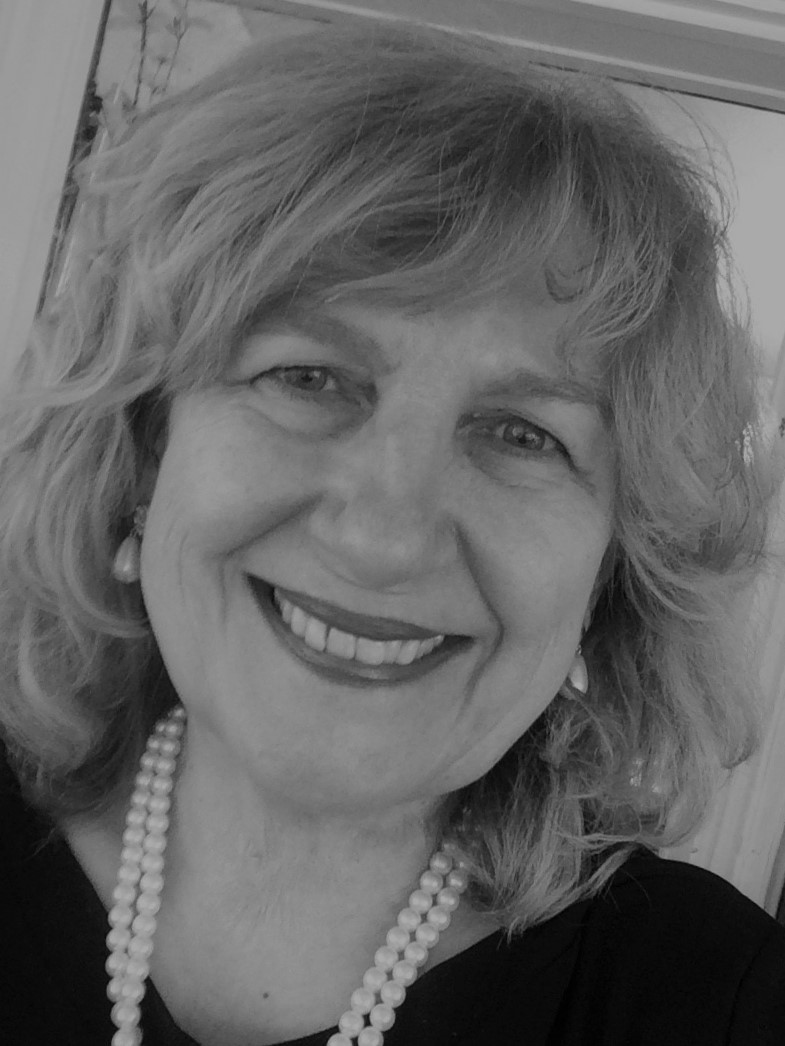 The word “Cuba” strikes a resonant chord with many of us – a mix of curiosity, anxiety, and hope – shaped by many years of controversy and stereotyping on one hand, and myth-making on the other. Whether you want to catch a glimpse of Cuban everyday life, learn about the island’s prolific artistic and cultural activities, discover African cultural heritage and syncretic religious practices or ponder unique socio-economic models ranging from urban agriculture to health policies, this presentation is for you. Based on decades of research and ample firsthand knowledge of Cuba, this presentation will also open up a space for discussing one of the most contentious topics: the ever-evolving relationship between the United States and Cuba as its most significant “other.”
The word “Cuba” strikes a resonant chord with many of us – a mix of curiosity, anxiety, and hope – shaped by many years of controversy and stereotyping on one hand, and myth-making on the other. Whether you want to catch a glimpse of Cuban everyday life, learn about the island’s prolific artistic and cultural activities, discover African cultural heritage and syncretic religious practices or ponder unique socio-economic models ranging from urban agriculture to health policies, this presentation is for you. Based on decades of research and ample firsthand knowledge of Cuba, this presentation will also open up a space for discussing one of the most contentious topics: the ever-evolving relationship between the United States and Cuba as its most significant “other.”
Elzbieta Sklodowska is a Randolph Family Professor of Spanish at Washington University in Saint Louis. She has done extensive research and teaching in/on Cuba and published widely on various topics pertaining to Spanish American literatures and cultures, such as parody, testimonial narrative, and postcoloniality. Several of her publications focus on Cuba and the Caribbean, including the monographs Espectros y espejismos: Haití en el imaginario cubano and Invento luego resisto: El Período Especial en Cuba como experiencia y metáfora (1990-2015). Most recently, she has served as the co-editor, with Mabel Cuesta, of Lecturas atentas. Una visita desde la ficción y la crítica a veinte narradoras cubanas contemporáneas (Almenara, 2019), a critical anthology of narratives by Cuban women writers, on and off the island.
5:30 p.m.
Admission: free
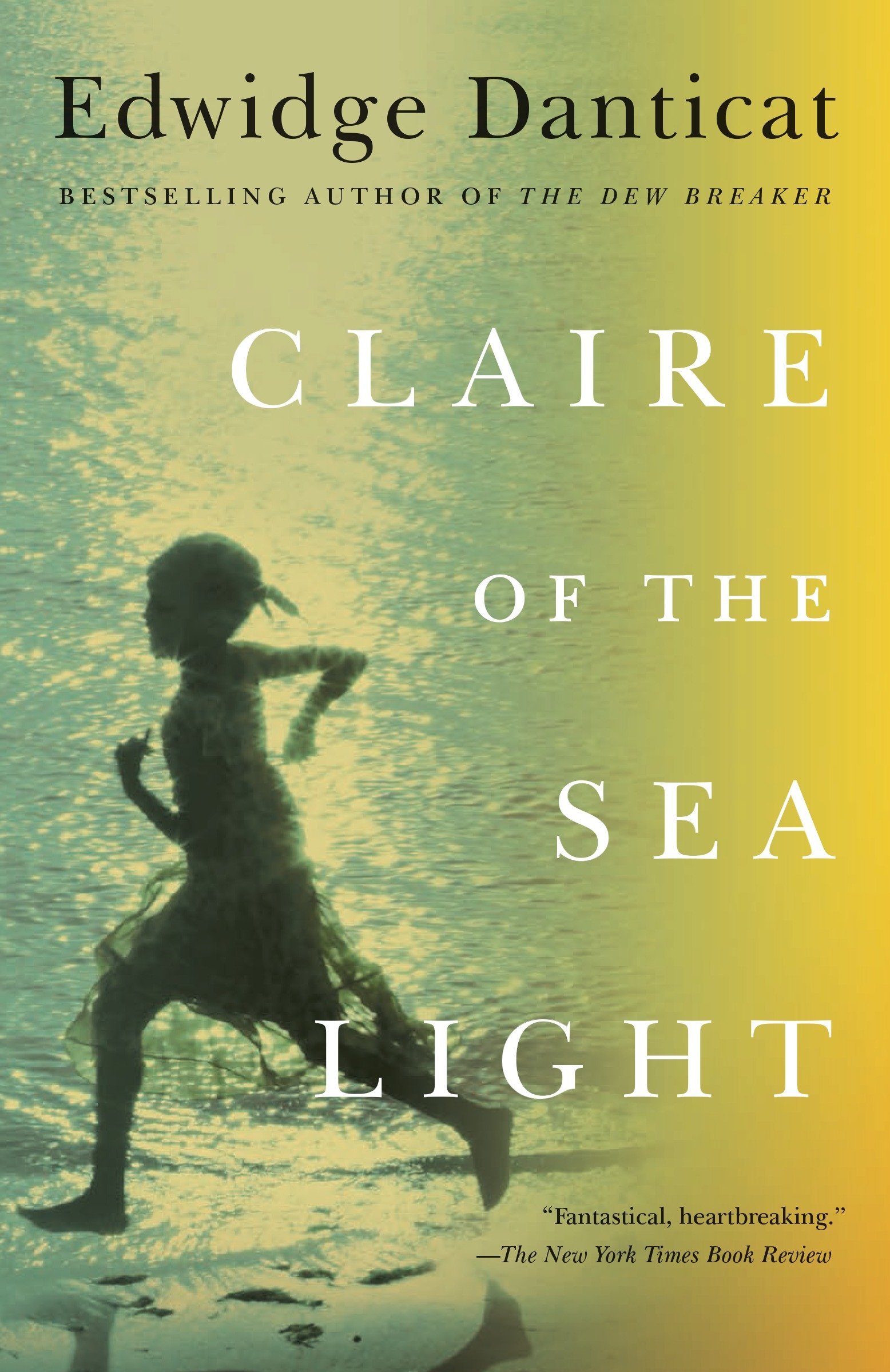 While Caribbean literature holds no indigenous traditions, writers from Caribbean islands and coastal nations have spent the last 100 years building a strong identity separate from larger world powers. Explore two novels and dive into the countries of Haiti and Jamaica as we read both Claire of the Sea Light (2013) by internationally best-selling and award-winning author Edwidge Danticat and Wide Sargasso Sea (1966) by Jean Rhys. This Caribbean-themed book club hosted by the MSSU English honor society, Sigma Tau Delta, will introduce you to ideas about family, friendship, and love entwined with the culture of the two islands.
While Caribbean literature holds no indigenous traditions, writers from Caribbean islands and coastal nations have spent the last 100 years building a strong identity separate from larger world powers. Explore two novels and dive into the countries of Haiti and Jamaica as we read both Claire of the Sea Light (2013) by internationally best-selling and award-winning author Edwidge Danticat and Wide Sargasso Sea (1966) by Jean Rhys. This Caribbean-themed book club hosted by the MSSU English honor society, Sigma Tau Delta, will introduce you to ideas about family, friendship, and love entwined with the culture of the two islands.
Claire of the Sea Light, a New York Times Book Review and Washington Post Notable Book of the Year, an NPR “Great Read,” a Christian Science Monitor Best Fiction Book, and a Library Journal Top Book, tells the story of the intertwined lives of the people of Ville Rose, Haiti. Set in Jamaica, Wide Sargasso Sea, written as a prelude to Charlotte Brontë’s Jane Eyre and telling the story of Antionette Cosway, was called a “A considerable tour de force by any standard” by the New York Times Book Review. Laura Fish in the Independent called it “not just a great novel, it is many brilliant books in one.”
The book club will meet on three Monday evenings throughout the semester: Sept. 21 (part one of Claire of the Sea Light), Oct. 5 (part two of Claire of the Sea Light), and Nov. 9 (Wide Sargasso Sea). Each event will have refreshments and is open to the public.
(The book club title is adapted from the short story “The Light on the Sea” by Barbadian author John Wickham.)
9:30 a.m.
Phelps Theater in BSC (Zoom presentation)
The Haitian Revolution and the Making of the Modern World Zoom recording
Admission: free
 A big-picture look at the Haitian Revolution of 1791–1804, at once the most successful slave rebellion in world history, the second war of independence in the Americas, the first state to emerge in the Americas led by people of African descent, the overthrow and transformation of an intensely capitalized economic system, and a serious complication for the French Revolution. Drawing on the latest scholarship, this talk introduces a general audience to some of the captivating life stories, complex politics, stunning achievements, and desperate characterizations of the revolution that created Haiti and helped usher in the modern age.
A big-picture look at the Haitian Revolution of 1791–1804, at once the most successful slave rebellion in world history, the second war of independence in the Americas, the first state to emerge in the Americas led by people of African descent, the overthrow and transformation of an intensely capitalized economic system, and a serious complication for the French Revolution. Drawing on the latest scholarship, this talk introduces a general audience to some of the captivating life stories, complex politics, stunning achievements, and desperate characterizations of the revolution that created Haiti and helped usher in the modern age.
Dr. Robert Taber is an assistant professor of history at Fayetteville State University in North Carolina, where he has taught courses on U.S., French, African American, Latin American, and world history since 2016. A specialist in family life in colonial and revolutionary Haiti, Taber completed his Ph.D. in Latin American history at the University of Florida in 2015. He has since published articles and essays on Haiti and co-edited the book Free Communities of Color and the Revolutionary Caribbean: Overturning or Turning Back? with Charlton Yingling. From August 2003 to February 2004, he lived in Haiti full-time, doing volunteer work.
9 a.m.
Corley Auditorium in Webster Hall
Admission: free
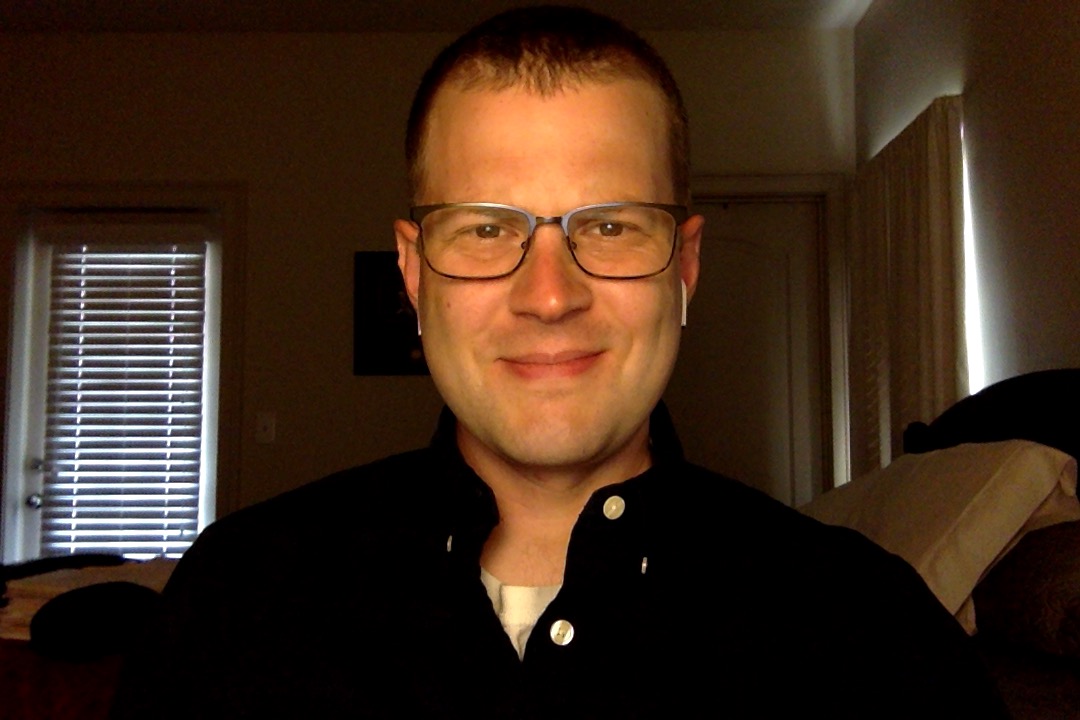 While baseball occupies a prominent place in Cuban society, it is by no means the only culturally important sport on the island. Divided into two sections – pre- and post-Revolution, this lecture will expand the scope of Cuban sport history beyond the baseball diamond to include the football gridiron, the boxing ring, and on the fields, gymnasiums, and natatoriums in international competitions.
While baseball occupies a prominent place in Cuban society, it is by no means the only culturally important sport on the island. Divided into two sections – pre- and post-Revolution, this lecture will expand the scope of Cuban sport history beyond the baseball diamond to include the football gridiron, the boxing ring, and on the fields, gymnasiums, and natatoriums in international competitions.
Michael T. Wood earned undergraduate degrees in finance and history, as well as a master’s degree in history, from the University of Alabama, and matriculated to Texas Christian University (TCU) for his Ph.D. studies. Fate brought him back to the University of Alabama, where he teaches sport studies courses as an instructor in the Department of American Studies. His research deals primarily with international cultural encounters between the United States and Latin America. Currently, his work focuses on American football games played between teams from the U.S. South and Havana during the first half of the 20th century and the “Havalanta Games,” a series of sport exchanges between high schools and clubs in Atlanta and Havana that took place from the late-1940s through the mid-1950s.
11 a.m.
Corley Auditorium in Webster Hall
The Cuban National Pastime Recording
Admission: free
Baseball, popularly known as the “national pastime” in the United States, has an equally long and important history in Cuba. Beginning in the 1860s and extending to the present, this lecture by Michael T. Wood will explore how this American game became a key part of Cuban culture. It will focus on its role in the formation of national identity, its place within a transnational sport culture, its use as a tool of foreign policy, and ultimately as a contested terrain between the United States and Cuba.
12 p.m.
Corley Auditorium in Webster Hall
Admission: free
The first sentence of the preface in Louis A. Pérez’s Cuba and the United States: Ties of Singular Intimacy (1990) neatly introduces U.S.-Cuba relations as being both “close and complicated.” Geographic proximity facilitated trade, cooperation, and the flow of people, ideas, and culture between the two countries. Geopolitical considerations, such as the emergence and evolution of Cuban nationalism and U.S. neocolonial expansion, strained the relationship between the United States and Cuba, and with the victory of the Cuban Revolution, seemly severed it beyond repair.
This lecture by Michael T. Wood will trace these “close and complicated” relations from the 19th century through the present. Beginning with the Cuban Wars of Independence, we will examine the struggle for Cuban nationhood, U.S. intervention and hegemonic influence, rising tensions between Cuban anti-imperial nationalists and U.S.-backed regimes, the victory of the Cuban Revolution, the U.S. and Cuba in the Cold War, the “special period” after the fall of the Soviet Union, and attempts at, and recent retreat from, normalization.
5:30 p.m.
Lights on the Sea Zoom link
Password: 217287
Admission: free
 While Caribbean literature holds no indigenous traditions, writers from Caribbean islands and coastal nations have spent the last 100 years building a strong identity separate from larger world powers. Explore two novels and dive into the countries of Haiti and Jamaica as we read both Claire of the Sea Light (2013) by internationally best-selling and award-winning author Edwidge Danticat and Wide Sargasso Sea (1966) by Jean Rhys. This Caribbean-themed book club hosted by the MSSU English honor society, Sigma Tau Delta, will introduce you to ideas about family, friendship, and love entwined with the culture of the two islands.
While Caribbean literature holds no indigenous traditions, writers from Caribbean islands and coastal nations have spent the last 100 years building a strong identity separate from larger world powers. Explore two novels and dive into the countries of Haiti and Jamaica as we read both Claire of the Sea Light (2013) by internationally best-selling and award-winning author Edwidge Danticat and Wide Sargasso Sea (1966) by Jean Rhys. This Caribbean-themed book club hosted by the MSSU English honor society, Sigma Tau Delta, will introduce you to ideas about family, friendship, and love entwined with the culture of the two islands.
Claire of the Sea Light, a New York Times Book Review and Washington Post Notable Book of the Year, an NPR “Great Read,” a Christian Science Monitor Best Fiction Book, and a Library Journal Top Book, tells the story of the intertwined lives of the people of Ville Rose, Haiti. Set in Jamaica, Wide Sargasso Sea, written as a prelude to Charlotte Brontë’s Jane Eyre and telling the story of Antionette Cosway, was called a “A considerable tour de force by any standard” by the New York Times Book Review. Laura Fish in the Independent called it “not just a great novel, it is many brilliant books in one.”
The book club will meet on three Monday evenings throughout the semester: Sept. 21 (part one of Claire of the Sea Light), Oct. 5 (part two of Claire of the Sea Light), and Nov. 9 (Wide Sargasso Sea). Each event will have refreshments and is open to the public.
(The book club title is adapted from the short story “The Light on the Sea” by Barbadian author John Wickham.)
10 a.m.
Corley Auditorium in Webster Hall
Admission: free
 Hoodoo, Voodoo, Vodou, and Catholicism…how do they fit together? What are they? What is the truth behind these African traditions/religions? Mambo Amanda will discuss these topics, and so much more, as we dive into the world and culture of the deep South, Africa, and Haiti. We will explore the truth behind each practice and how Hollywood fantasy has misled us. We will also discuss how Catholicism fits within these traditions/religions and the spirits they work with.
Hoodoo, Voodoo, Vodou, and Catholicism…how do they fit together? What are they? What is the truth behind these African traditions/religions? Mambo Amanda will discuss these topics, and so much more, as we dive into the world and culture of the deep South, Africa, and Haiti. We will explore the truth behind each practice and how Hollywood fantasy has misled us. We will also discuss how Catholicism fits within these traditions/religions and the spirits they work with.
Mambo Amanda (Amanda L. Keith) is a priestess in Haitian Vodou. She is also a conjure woman and initiate in the Temple of Witchcraft. She is the co-owner of 3 Crows Conjure (https://3crowsconjure.com), an online store dedicated to handmade hoodoo products. She also directs the occult master class (https://crowdcast.io/occultmasterclass), an online learning platform for occult topics. She traveled to Haiti in 2018 and was initiated into the Asson tradition of Haitian Vodou as a mambo in the Sosyete La Fraicheur Belle Fleur Guinea of Long Island, N.Y., and Petionville, Haiti. She has been teaching the occult to others since 2007.
2 p.m. (cleansing discussion)
African Art Cleaning Recording
Admission: free
Mambo Amanda will also give a zoom talk on the traditions of Hoodoo and Vodou in connection to the MSSU African Art collection. This zoom discussion will take place in the African Art collection room and is open to a limited number of participants. A guided cleansing of the African Art collection will follow this discussion. Both the talk and cleansing will require an RSVP for participation. Please contact Dr. Christine Bentley at bentley-c@mssu.edu or 417-625-3066 to RSVP.
5:30 p.m.
A Conversation with Edwidge Danticat Recording
Admission: free
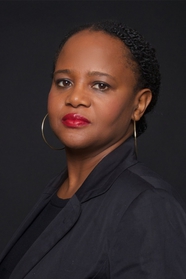 Join us for a conversation with Edwidge Danticat, the author of the Caribbean Semester Book Club selection Claire of the Sea Light (2013). Danticat, an internationally best-selling and award-winning author, has written four other novels and a recently released collection of short stories, Everything Inside: Stories (2019) in addition to memoirs, children’s and young adult literature, and numerous articles and essays published in many popular venues such as The New Yorker, New York Times, and Harper’s Magazine. She regularly reflects on and writes about the immigrant experience; Haitian-American identity; death, dying, grief, and loss; parent/child relationships; and more. This conversation and question/answer session will be conducted live via remote video technology.
Join us for a conversation with Edwidge Danticat, the author of the Caribbean Semester Book Club selection Claire of the Sea Light (2013). Danticat, an internationally best-selling and award-winning author, has written four other novels and a recently released collection of short stories, Everything Inside: Stories (2019) in addition to memoirs, children’s and young adult literature, and numerous articles and essays published in many popular venues such as The New Yorker, New York Times, and Harper’s Magazine. She regularly reflects on and writes about the immigrant experience; Haitian-American identity; death, dying, grief, and loss; parent/child relationships; and more. This conversation and question/answer session will be conducted live via remote video technology.
11 a.m.
Corley Auditorium in Webster Hall
Struggle to Preserve “Cultural Identity” Recording
Admission: free
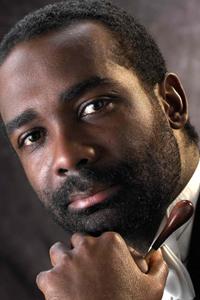 This lecture/demonstration will introduce emerging Caribbean composers and highlight some of the barriers that they face. During this talk, Jean (Rudy) Perrault will play compositions by various Caribbean composers and briefly discuss what specifically makes them “Caribbean.” The larger issue of their anonymity will be framed against what is often accepted and promoted as “classical” music.
This lecture/demonstration will introduce emerging Caribbean composers and highlight some of the barriers that they face. During this talk, Jean (Rudy) Perrault will play compositions by various Caribbean composers and briefly discuss what specifically makes them “Caribbean.” The larger issue of their anonymity will be framed against what is often accepted and promoted as “classical” music.
Jean (Rudy) Perrault is director of orchestras and a professor of music at the University of Minnesota Duluth. Perrault coaches chamber music, conducts both the symphony and chamber orchestras, and teaches violin, viola, and the graduate conducting classes. Born in Port-au-Prince, Haiti, he earned his master’s degree in violin performance from Temple University. He has guest conducted numerous ensembles in Trinidad, Cuba, Panama, France, Sweden, Russia, Haiti, Brazil, Italy, and Turkey. A Fulbright Scholar, Perrault has conducted music teacher training in Trinidad and Tobago and research on “pan literacy.”
1 p.m.
Cornell Auditorium in Plaster Hall
Voodoo: Cult or Religion? Recording
Password: 026257
Admission: free
Voodoo (or more precisely Vodou) has long been associated with malevolent forces, zombies, witch doctors, primitive and macabre rituals, and otherworldly phenomena. But is this the reality, or has it been viewed through a carefully crafted lens? This presentation will focus on the misconceptions and the realities of Vodou. Rooted in religious African traditions, it evolved in Haiti under the name Vodou, but strikingly similar practices are found all over the Caribbean islands. From Cuba (Santería and Vodú), Jamaica (Obeah), Puerto Rico (Sanse), to as far south as Trinidad and Tobago, they all evolved from that original thread in Africa. Practitioners are free to worship their deities openly in some countries, but not in others. This talk will begin to lift the veil on some of these mysteries.
Jean (Rudy) Perrault is director of orchestras and a professor of music at the University of Minnesota Duluth. Perrault coaches chamber music, conducts both the symphony and chamber orchestras, and teaches violin, viola, and the graduate conducting classes. Born in Port-au-Prince, Haiti, he earned his master’s degree in violin performance from Temple University. He has guest conducted numerous ensembles in Trinidad, Cuba, Panama, France, Sweden, Russia, Haiti, Brazil, Italy, and Turkey. A Fulbright Scholar, Perrault has conducted music teacher training in Trinidad and Tobago and research on “pan literacy.”
7:30 p.m.
Central Christian Center
410 S. Virginia Ave., Joplin, MO
Admission: free
The Southern Symphony Orchestra will showcase chamber and full orchestra works of composers from across the Caribbean region. This concert will cap off the residency of Haitian-born conductor and composer, Jean (Rudy) Perrault. The annual MSSU Concerto Aria Competition winners, Stacey Struble, and Andrea Huckabay, will also be featured in this concert.
12 p.m.
Corley Auditorium in Webster Hall
Recording
Admission: free
 In 1775, slavery was legal everywhere in the Americas. By 1890, it was legal nowhere. Key to this dramatic change was the Haitian Revolution of 1789-1804, the most successful rebellion of enslaved people in the history of the world. The success of the rebels had many consequences – transformation of the Haitian economy, shocked reaction from Europe and the United States, diplomatic isolation, tighter restrictions on enslaved peoples on the American continent, and a diaspora of refugees, including many to Charleston and New Orleans. This talk introduces the audience to the major events, themes, and personalities of the revolution in order to highlight the struggles and joys of liberation and reconstruction and the ways the Haitian Revolution influenced the coming of the U.S. Civil War.
In 1775, slavery was legal everywhere in the Americas. By 1890, it was legal nowhere. Key to this dramatic change was the Haitian Revolution of 1789-1804, the most successful rebellion of enslaved people in the history of the world. The success of the rebels had many consequences – transformation of the Haitian economy, shocked reaction from Europe and the United States, diplomatic isolation, tighter restrictions on enslaved peoples on the American continent, and a diaspora of refugees, including many to Charleston and New Orleans. This talk introduces the audience to the major events, themes, and personalities of the revolution in order to highlight the struggles and joys of liberation and reconstruction and the ways the Haitian Revolution influenced the coming of the U.S. Civil War.
Dr. Robert Taber is an assistant professor of history at Fayetteville State University in North Carolina, where he has taught courses on U.S., French, African American, Latin American, and world history since 2016. A specialist in family life in colonial and revolutionary Haiti, Taber completed his Ph.D. in Latin American history at the University of Florida in 2015. He has since published articles and essays on Haiti and co-edited the book Free Communities of Color and the Revolutionary Caribbean: Overturning or Turning Back? with Charlton Yingling. From August 2003 to February 2004, he lived in Haiti full-time, doing volunteer work.
1 p.m.
Admission: free
This presentation by Dr. Robert Taber examines the recent history of Haiti as the “Republic of NGOs,” including before and after the 2010 earthquake, to analyze some of the typical challenges of aid programs run by governments, nonprofits, and religious groups. From the “creole pig” debacle to the Arkansas rice deal to the efforts of Partners in Health, this talk explores what doesn’t work in foreign aid and, importantly, what does.
7 p.m.
Cornell Auditorium in Plaster Hall
“The World of Islands”: Readings from the Caribbean Zoom link
Password: 442444
Admission: free
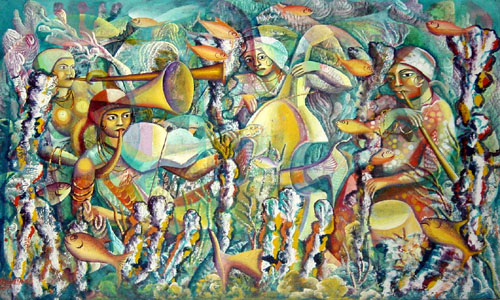 Allow readings from literary works varying in genre and style to transport you to the Caribbean islands – a region as expansive as it is diverse. Introduced by Dr. William T. Fischer, students from the MSSU English department and English honor society Sigma Tau Delta will demonstrate the power of Caribbean literature by reading stories and poetry from Haiti, the Dominican Republic, Cuba, Jamaica, the Cayman Islands, and more. All readings are in English translation. (The illustration is Symphony of Sounds by Haitian artist Charles Dufranc. The title “The World of Islands” comes from a poem by Tobagan poet Eric Roach.)
Allow readings from literary works varying in genre and style to transport you to the Caribbean islands – a region as expansive as it is diverse. Introduced by Dr. William T. Fischer, students from the MSSU English department and English honor society Sigma Tau Delta will demonstrate the power of Caribbean literature by reading stories and poetry from Haiti, the Dominican Republic, Cuba, Jamaica, the Cayman Islands, and more. All readings are in English translation. (The illustration is Symphony of Sounds by Haitian artist Charles Dufranc. The title “The World of Islands” comes from a poem by Tobagan poet Eric Roach.)
5:30 p.m.
Lights on the Sea Zoom link
Password: 023885
Admission: free
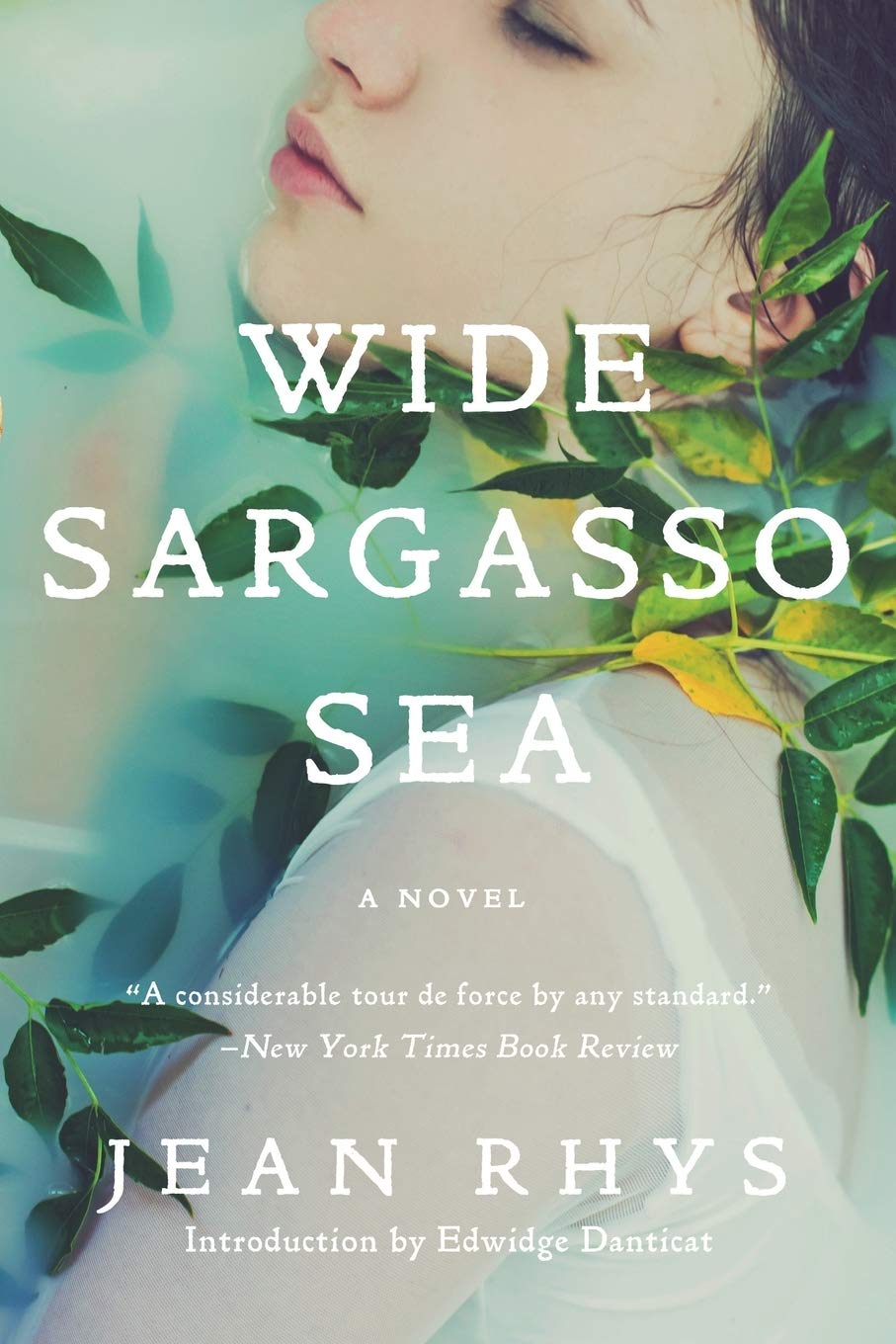 While Caribbean literature holds no indigenous traditions, writers from Caribbean islands and coastal nations have spent the last 100 years building a strong identity separate from larger world powers. Explore two novels and dive into the countries of Haiti and Jamaica as we read both Claire of the Sea Light (2013) by internationally best-selling and award-winning author Edwidge Danticat and Wide Sargasso Sea (1966) by Jean Rhys. This Caribbean-themed book club hosted by the MSSU English honor society, Sigma Tau Delta, will introduce you to ideas about family, friendship, and love entwined with the culture of the two islands.
While Caribbean literature holds no indigenous traditions, writers from Caribbean islands and coastal nations have spent the last 100 years building a strong identity separate from larger world powers. Explore two novels and dive into the countries of Haiti and Jamaica as we read both Claire of the Sea Light (2013) by internationally best-selling and award-winning author Edwidge Danticat and Wide Sargasso Sea (1966) by Jean Rhys. This Caribbean-themed book club hosted by the MSSU English honor society, Sigma Tau Delta, will introduce you to ideas about family, friendship, and love entwined with the culture of the two islands.
The book club will meet on three Monday evenings throughout the semester: Sept. 21 (part one of Claire of the Sea Light), Oct. 5 (part two of Claire of the Sea Light), and Nov. 9 (Wide Sargasso Sea). Each event will have refreshments and is open to the public.
(The book club title is adapted from the short story “The Light on the Sea” by Barbadian author John Wickham.)
11 a.m.
Corley Auditorium in Webster Hall
Bob Marley and the Resurgence of Pan-Africanism Zoom link
Password: 780606
Admission: free
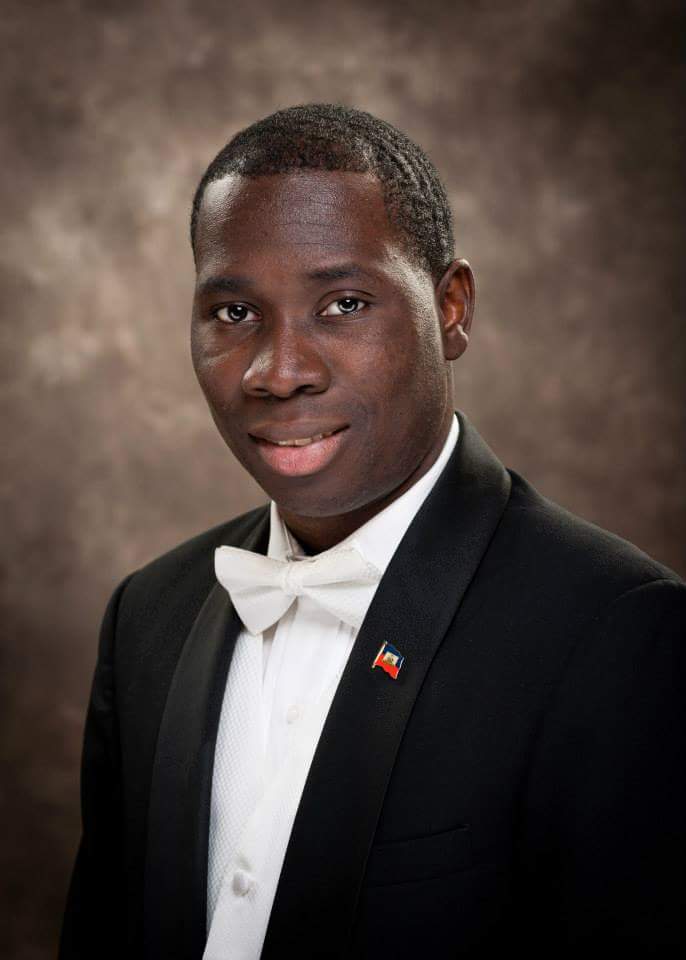 A look into Bob Marley’s fight for equality, social justice, and human rights through his music, lyrics, and culture. We will be taking a look into one of the greatest albums of all time, Legend, and analyzing what made Marley such a freedom fighter and one of the most influential artists to ever live.
A look into Bob Marley’s fight for equality, social justice, and human rights through his music, lyrics, and culture. We will be taking a look into one of the greatest albums of all time, Legend, and analyzing what made Marley such a freedom fighter and one of the most influential artists to ever live.
Dr. Canès Nicolas is in his third year at MSSU as assistant professor of music and director of the Southern Symphony Orchestra. Born and raised in Port-au-Prince, Haiti, he attended L’Ecole de Musique Sainte Trinité (Holy Trinity Music School), where he received his first musical training. He began learning the violin at the age of eight, and in 2002 he joined L’Orchestre Philarmonique Sainte Trinité (Holy Trinity Philharmonic Orchestra).
At the University of Minnesota Duluth, Nicolas was a recipient of several scholarships and the Orchestra Award. At Ohio University, he was the assistant conductor of the Ohio University symphony and campus orchestras. He also served as the assistant conductor of orchestras at the University of Nebraska-Lincoln.
Nicolas has studied conducting in Europe as well as the United States with such teachers as Dumitru Goia, Steven Huang, Keith Lockhart, Dr. Tyler White and Markand Thakar. Prior to joining the faculty at MSSU, Nicolas taught at Southern Utah University and Wayne State College.
9:30 a.m.
Why Export to the Caribbean? Recording
Admission: free
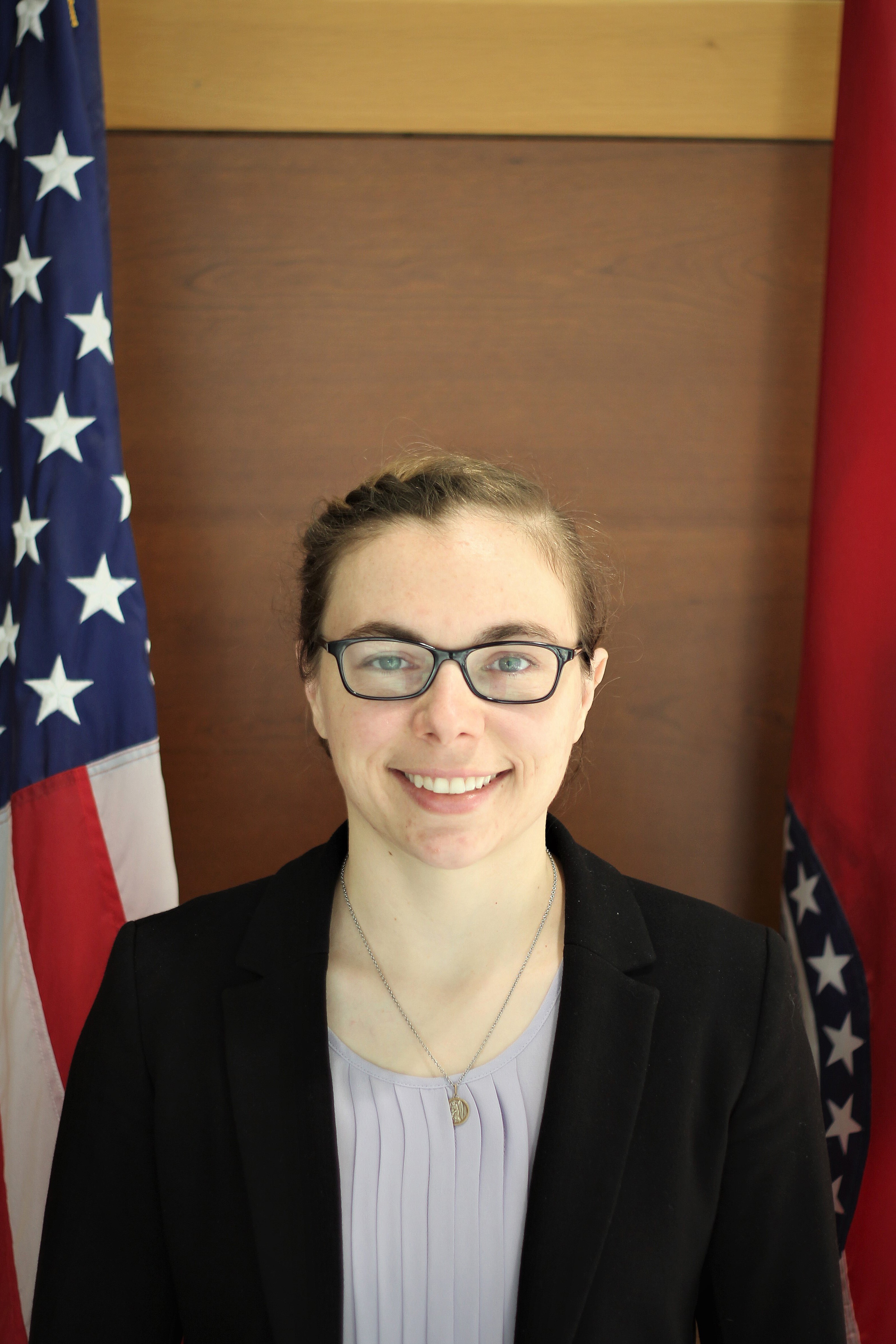 The Caribbean region has numerous opportunities for Missouri businesses. The Caribbean region is a sizeable export market, importing $20 billion of U.S. products and services. As such, the close proximity, free trade opportunities, and regional integration make the Caribbean region worth exploring. Learn more about the opportunities and assistance available for anyone interested in trade between the U.S. and the Caribbean.
The Caribbean region has numerous opportunities for Missouri businesses. The Caribbean region is a sizeable export market, importing $20 billion of U.S. products and services. As such, the close proximity, free trade opportunities, and regional integration make the Caribbean region worth exploring. Learn more about the opportunities and assistance available for anyone interested in trade between the U.S. and the Caribbean.
Natascha Lord is a trade specialist for the Missouri Department of Economic Development’s Americas’ region and works in conjunction with the state’s foreign offices in Canada and Mexico to assist Missouri businesses.
Lord is a 2015 graduate of Missouri Southern State University, where she received a bachelor of science in international business and a bachelor of arts in German. As a U.S. State Department Benjamin A. Gilman Scholar, she also spent time studying at Katholische Universität in Eichstätt, Germany. Lord is a Certified Global Business Professional and enjoys working with Missouri companies to help them grow and sell their products and services overseas.
10 a.m.
Corley Auditorium in Webster Hall
Exploring Music and Identity Zoom link
Password: 333384
Admission: free
Trinidad and Tobago has a unique place in the world of music as the birthplace of calypso and soca, two styles of popular music known throughout the world. The nation is also the birthplace of one of the few acoustic instruments invented in the 20th century, the steel pan. Since its emergence, the pan has been constructed from various raw materials, including biscuit tins and industrial soda barrels. Currently, pans are produced from 55-gallon oil drums via a painstaking process of hand hammering divots into a sunken steel surface and tuning fundamental and harmonic tones. Musical ensembles formed out of these instruments are called steelbands and display a tonal range comparable to the classical symphony orchestra.
Once the steel pan and its music started to appear on the international stage in the mid-20th century, pan builders and steelbands emerged in numerous countries throughout the world and now occupy every level of musical activity. Professional performing ensembles, educational ensembles, and community groups currently exist in every U.S. state as the instrument has proven itself as an accessible vessel for high artistic expression and musical understanding. This talk will explore the beginnings of the steel pan in Trinidad, the pan’s role in unifying communities, the interface between steel pan and calypso, and the emergence of the pan in other nations and cultures.
Dr. Greg Haynes is a Connecticut-based percussionist, composer, and educator. As a performer, Haynes is active as both a soloist and an ensemble player, having performed concertos by Keiko Abe, Allan Bell, Michael Daugherty, Craig Fitzpatrick, Ney Rosauro, and Kerwin Young in addition to solo recitals, chamber works, and orchestral pieces throughout the United States and internationally. He has performed with a diverse selection of ensembles including the Hartford Symphony, the Longmont Symphony, the Midwest Chamber Ensemble, Banda Sinfonica de Santa Fe in Argentina, Marimba Sol de Chiapas, and the Redemption Sound Setters steel orchestra in Tobago.
Haynes is an assistant professor of music at Western Connecticut State University, where he teaches courses in percussion, music business, and audio production. Haynes previously served on the faculties of Western Colorado University, Missouri Western State University, and Missouri Southern State University. He received his doctor of musical arts degree from the University of Kansas in 2009.
5 p.m.
Corley Auditorium in Webster Hall
Admission: free
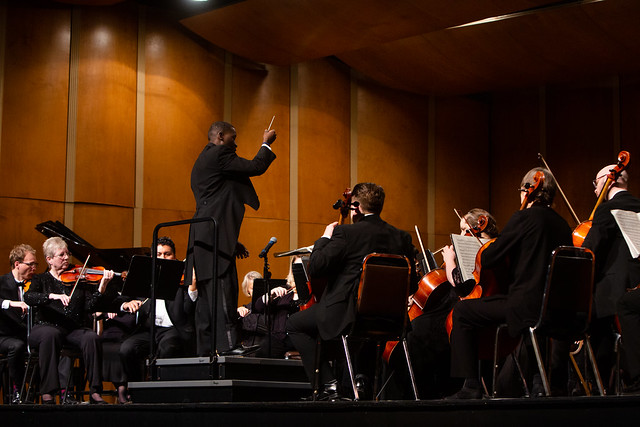 Caribbean Rhapsody in Brass and Steel is a three-song arrangement custom written exclusively for the Missouri Southern State University steel band and trombone quartet. Each of the featured pieces is orchestrated for the unique combination of two distinct chamber ensembles in a manner that allows the instruments to complement one another in a rich, multi-layered sound texture. The arrangement trio begins with an energetic tribute to the traditional calypsonians of Trinidad and Tobago before moving into the familiar legato strains of songwriter Irving Burgie, whose career popularized Caribbean music on a grand scale. Finally, the work touches on stylistic elements influencing calypso by culminating in a spirited rendition of Belafonte’s “Turn the World Around.” All songs have been arranged though permissions granted by the Hal Leonard Corporation.
Caribbean Rhapsody in Brass and Steel is a three-song arrangement custom written exclusively for the Missouri Southern State University steel band and trombone quartet. Each of the featured pieces is orchestrated for the unique combination of two distinct chamber ensembles in a manner that allows the instruments to complement one another in a rich, multi-layered sound texture. The arrangement trio begins with an energetic tribute to the traditional calypsonians of Trinidad and Tobago before moving into the familiar legato strains of songwriter Irving Burgie, whose career popularized Caribbean music on a grand scale. Finally, the work touches on stylistic elements influencing calypso by culminating in a spirited rendition of Belafonte’s “Turn the World Around.” All songs have been arranged though permissions granted by the Hal Leonard Corporation.